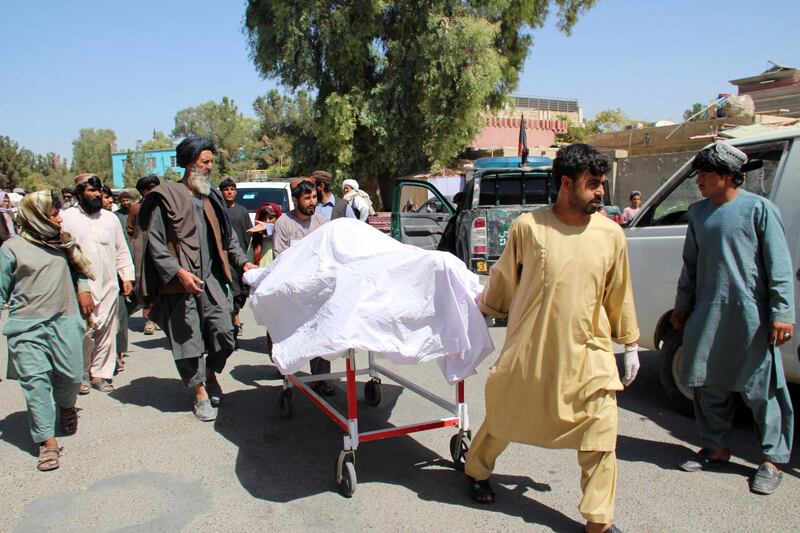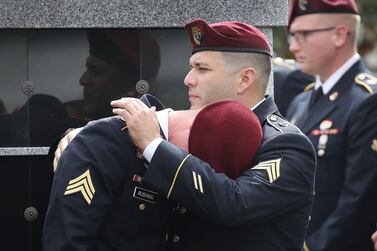A senior Al Qaeda leader was killed in a joint US-Afghan raid in southern Afghanistan last month, officials confirmed on Tuesday.
Asim Umar, who led the terrorist group in the Indian subcontinent, known as Aqis, from its inception in 2014, was killed during a raid on September 23 at a Taliban compound in the Musa Qala district of Helmand province, officials said.
Aqis was used to rouse fighters in India, Bangladesh and Myanmar.
At least 40 citizens, including children, were reported to have been killed in an air strike during the operation, in which the US assisted.
The Afghan Taliban denied that Umar had died, calling the report "enemy-fabricated propaganda" and saying a wedding party had been hit, causing "only heavy civilian losses".
Afghanistan's National Directorate of Security said Umar was a Pakistani citizen, although some reports claim he was born in India.
He "was killed along with six other Aqis members, most of them Pakistani", the directorate said on Twitter.
It said that Umar had been embedded with the Taliban.
The directorate said that among the six other Aqis members killed in the raid was a man identified as "Raihan", a courier for Al Qaeda leader Ayman Al Zawahiri.
The US and Al Qaeda have not confirmed Umar’s death or those of the other six members.
After more than a year of negotiations between US and the Taliban, Washington agreed to pull troops from Afghanistan if the insurgents abided by security guarantees and cut all ties with Al Qaeda.
The deal might have paved the way to a reduction in violence, but US President Donald Trump scuttled that agreement last month, after the Taliban killed an American soldier.
Even if the deal had been finalised, observers doubted whether the Taliban would ever separate from Al Qaeda.
The US invaded Afghanistan after the Taliban refused to hand over Al Qaeda leader Osama bin Laden following the September 11, 2001 attacks against America.






